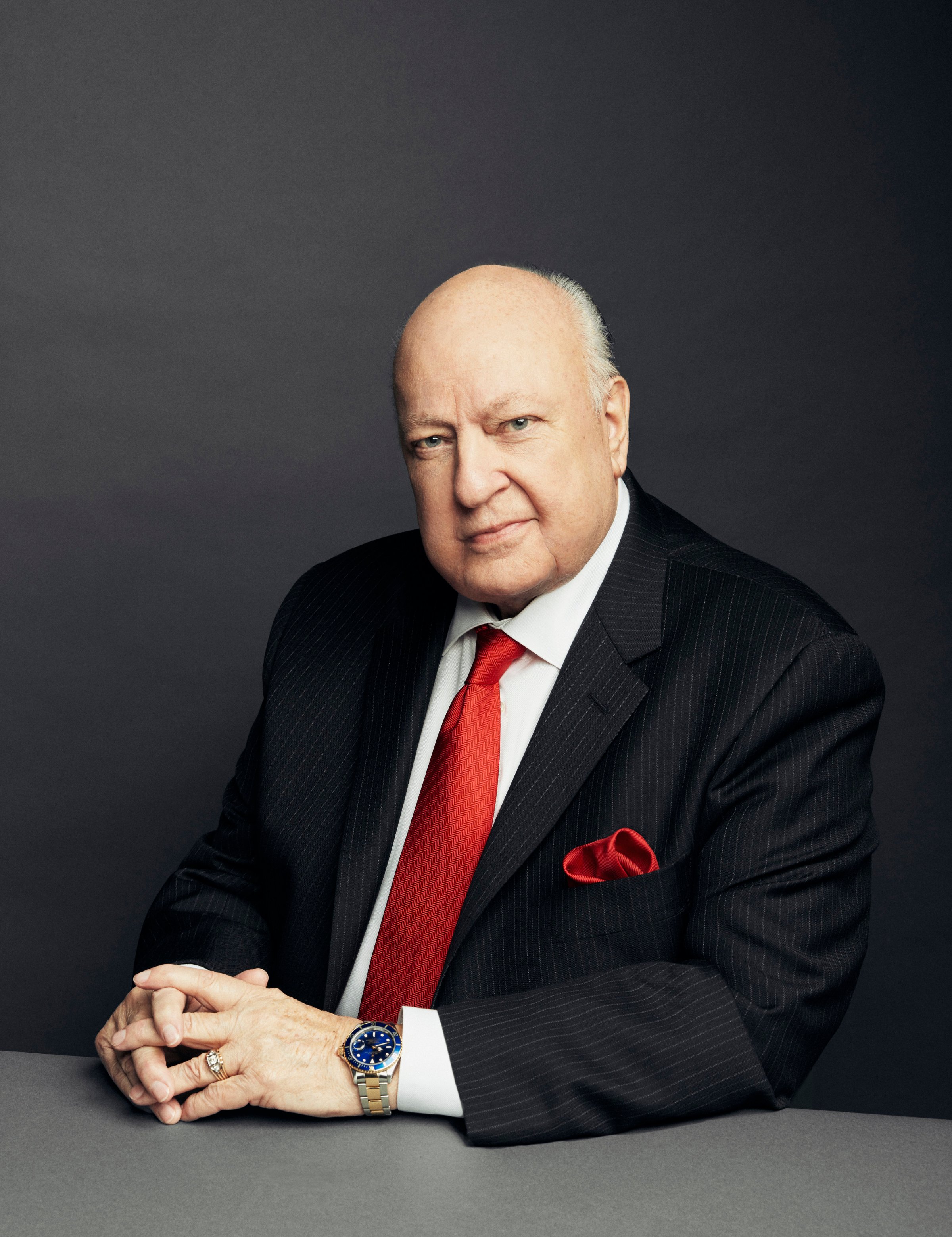
It is by now apparent that Fox News CEO Roger Ailes’ career, amidst an internal review over allegations of sexual harassment, will not recover. Whether or not he indeed leaves the cable giant in the very short term, as multiple reports indicate he’s currently in talks to do, he has found himself the subject of relentless scrutiny—including, most jarringly, on the cover of Fox corporate partner the New York Post.
He’s done the one thing a figure in TV news isn’t supposed to do: become the story himself.
Ailes’ impending downfall—set into motion by former Fox News anchor Gretchen Carlson’s allegation that he had suggested she could advance her career by sleeping with him and bolstered by other women’s similar accounts—has been met with admirable seriousness by the network and its parent, 21st Century Fox. After all, Fox News’ onscreen depiction of its female stars does not exactly reflect the loftiest standard of equality. Ailes, in building the defining cable news network of the past two decades, is a visionary, and one component part of his vision was clear for all to see—blonde, tanned, and leggy anchors, denied in the main the opportunity to speak as forthrightly as commentary hosts like Bill O’Reilly or Sean Hannity. The Fox News “look” has been for years a startling identifier of the network as much as the logo in the corner of the screen, lending an uncanny sense of having entered a world less of news than of someone else’s choreographed pageantry.
Fox News under Ailes was a network that, more successfully than any competitor, managed to grind the unappealing gristle of politics into an entertainment product—glamorous, fun, and satisfying, albeit not so filling that you couldn’t keep watching all day and into the night. The network understood and capitalized upon a sense of discontentment that began during the Clinton boom years, with programming that assuaged viewers’ fears by reminding them that there was always someone out there to blame, or to hate. Sept. 11, 2001, the single most disorienting news event in recent American history, provided an opening for the network to tell a story of American reassertion of might in the Middle East: Just as the first Gulf War helped define a young CNN, so did the Iraq War, and the uneasy political climate that preceded it, crystallize Fox’s idea of the news as a never-ending soap serial, with winners, losers, and above all, fights.
The network’s genius lies in its motto. Ailes’ Fox News has claimed, “We report. You decide,” a slogan implying both that it’s the viewer’s responsibility to take part in the debates endlessly unfolding, and that the network, through its reporting, has access to empirical truth. Fox’s “Fair and Balanced” truth tended to look back toward an idealized vision of the past, with hosts like O’Reilly playing a paternal role in reminding the audience of good old-fashioned American values and deriding values that have come to be cherished more recently, like diversity and inclusiveness. The network has made great sport of trigger-warning-happy college students and followed dark fears about President Obama’s roots—indulging specious theories like birtherism to try to turn electoral politics into some dark combination of pro wrestling and a spy novel. It’s fairly easy to draw a straight line between the culture the network created and the rise of Donald Trump, even if Fox News has had a complicated relationship with Trump himself. The Trump campaign and the world of Fox share a tendency to frame boisterous argumentation as the only way to maintain ground that’s slipping away in a culture that is, as Fox would have it, rapidly changing for the worse.
That tone will survive, even if other particulars of the Fox News experience fall away. Megyn Kelly, the star anchor whose reported allegation that Ailes sexually harassed her too was widely seen as a final blow for Ailes, has already made it difficult to make any sweeping claims about the network’s gender balance, so effective has she been in merging the Fox News house style with a brio all her own. But Ailes’ success, while rare, is likely replicable. The network has, through night after night after night of outrage in prime-time, so deeply worn into its grooves that it’s hard to imagine it falling apart after losing a CEO.
Twenty years into its existence, the network Ailes created is more formidable than any one person. So, too, are countervailing forces of outrage that have gained currency during the network’s two decades—like, for instance, a greater disposition by the public to believe what women say about their experiences in the workplace.
Fox News was right that our culture has changed. And that change moved quickly enough to effectively to put an end to the career of an executive for whom staging, and winning, ideological battles was a way of life.
More Must-Reads from TIME
- Cybersecurity Experts Are Sounding the Alarm on DOGE
- Meet the 2025 Women of the Year
- The Harsh Truth About Disability Inclusion
- Why Do More Young Adults Have Cancer?
- Colman Domingo Leads With Radical Love
- How to Get Better at Doing Things Alone
- Michelle Zauner Stares Down the Darkness
Contact us at letters@time.com